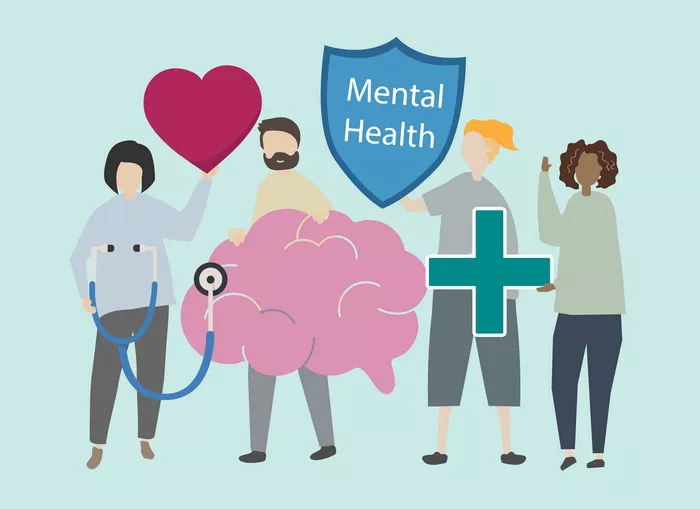In the fast-paced and demanding world we live in, maintaining optimal mental well-being is a crucial aspect of leading a fulfilling and productive life. Our mental health significantly influences our overall quality of life, affecting our relationships, work performance, and daily activities. This comprehensive guide aims to provide practical and actionable steps to help you improve your mental well-being and make yourself feel better mentally.
Understanding Mental Well-being
Before delving into specific strategies, it’s essential to grasp the concept of mental well-being. Mental well-being encompasses emotional, psychological, and social factors that contribute to an individual’s overall mental health. This includes emotional resilience, coping mechanisms, and the ability to navigate life’s challenges effectively. Understanding the foundations of mental well-being is crucial for implementing strategies that will make a positive impact.
Identifying and Managing Stress
Stress is an inevitable part of life, but managing it is key to maintaining good mental health. Identify the sources of stress in your life, whether they are work-related, personal, or environmental. Develop healthy coping mechanisms, such as mindfulness, deep breathing exercises, or engaging in activities you enjoy. Additionally, establishing a healthy work-life balance and learning to prioritize tasks can significantly reduce stress levels.
Prioritizing Sleep
Quality sleep is fundamental to mental well-being. Lack of sleep can lead to irritability, cognitive impairment, and heightened stress levels. Establish a consistent sleep routine, create a comfortable sleep environment, and limit screen time before bedtime. Prioritizing sleep hygiene contributes to improved cognitive function, emotional stability, and overall mental resilience.
Nutrition and Mental Health
The connection between nutrition and mental health is well-established. A balanced diet that includes essential nutrients such as omega-3 fatty acids, vitamins, and minerals is vital for optimal brain function. Incorporate a variety of fruits, vegetables, whole grains, and lean proteins into your diet. Limiting the intake of processed foods, caffeine, and sugary snacks can positively impact mood and cognitive function.
Physical Activity and Mental Well-being
Regular physical activity is not only beneficial for physical health but also plays a significant role in improving mental well-being. Engage in activities you enjoy, whether it’s walking, jogging, swimming, or yoga. Exercise releases endorphins, the body’s natural mood enhancers, and contributes to reduced stress and anxiety. Establishing a consistent exercise routine can have long-lasting positive effects on your mental health.
Building and Nurturing Relationships
Social connections are essential for mental well-being. Cultivate and maintain positive relationships with friends, family, and colleagues. Share your thoughts and feelings with trusted individuals, fostering a support system. Actively listen to others, practice empathy, and contribute to meaningful conversations. Building and nurturing relationships provide a sense of belonging and contribute to emotional stability.
Mindfulness and Meditation Practices
Mindfulness and meditation are powerful tools for improving mental well-being. Incorporate mindfulness techniques into your daily routine, such as deep breathing exercises, guided meditation, or mindful walking. These practices help calm the mind, reduce stress, and enhance self-awareness. Consistent mindfulness can lead to improved focus, emotional regulation, and an overall sense of inner peace.
Setting Realistic Goals
Setting and achieving realistic goals is essential for a positive mental outlook. Break down larger goals into smaller, achievable steps, allowing for a sense of accomplishment along the way. Celebrate your successes, no matter how small, and learn from challenges. Goal-setting provides direction, motivation, and a sense of purpose, contributing to improved mental well-being.
Cognitive Behavioral Techniques
Cognitive-behavioral techniques focus on identifying and challenging negative thought patterns. Develop self-awareness to recognize distorted thinking and replace it with more realistic and positive perspectives. Techniques such as cognitive restructuring and journaling can be effective in changing negative thought patterns and promoting a healthier mindset.
Professional Support and Therapy
Seeking professional support is a proactive step towards mental well-being. Therapists, counselors, or mental health professionals can provide guidance, support, and tools to navigate challenges. Don’t hesitate to reach out for help if you are struggling with your mental health. Therapy offers a safe and confidential space to explore your thoughts and emotions, fostering personal growth and resilience.
Cultivating a Positive Mindset
A positive mindset is a powerful asset in improving mental well-being. Practice gratitude by acknowledging and appreciating the positive aspects of your life. Challenge negative self-talk and focus on solutions rather than problems. Surround yourself with positivity, whether it’s through uplifting literature, inspirational quotes, or spending time with optimistic individuals.
Embracing Leisure and Hobbies
Engaging in leisure activities and hobbies provides a necessary break from daily stressors and contributes to mental well-being. Dedicate time to activities you enjoy, whether it’s reading, gardening, painting, or playing a musical instrument. Hobbies offer a creative outlet, promote relaxation, and contribute to a balanced and fulfilling lifestyle.
Conclusion
In conclusion, enhancing your mental well-being is a multifaceted process that involves various aspects of your life. By understanding the foundations of mental well-being and implementing these practical strategies, you can make significant strides towards feeling better mentally. Remember that progress takes time, and it’s essential to be patient and consistent in your efforts. Prioritize self-care, seek support when needed, and embrace the journey towards improved mental health for a more fulfilling and balanced life.
[inline_related_posts title=”You Might Be Interested In” title_align=”left” style=”list” number=”6″ align=”none” ids=”5729,4530,5195″ by=”categories” orderby=”rand” order=”DESC” hide_thumb=”no” thumb_right=”no” views=”no” date=”yes” grid_columns=”2″ post_type=”” tax=””]
































